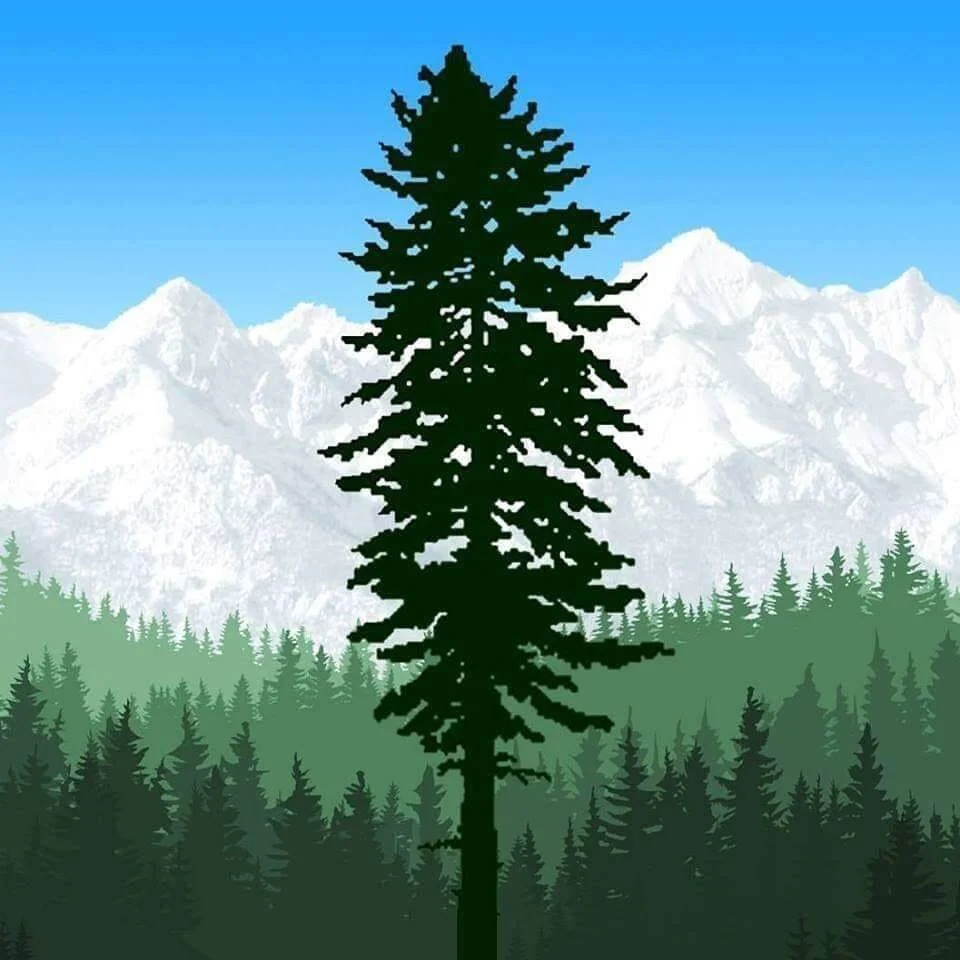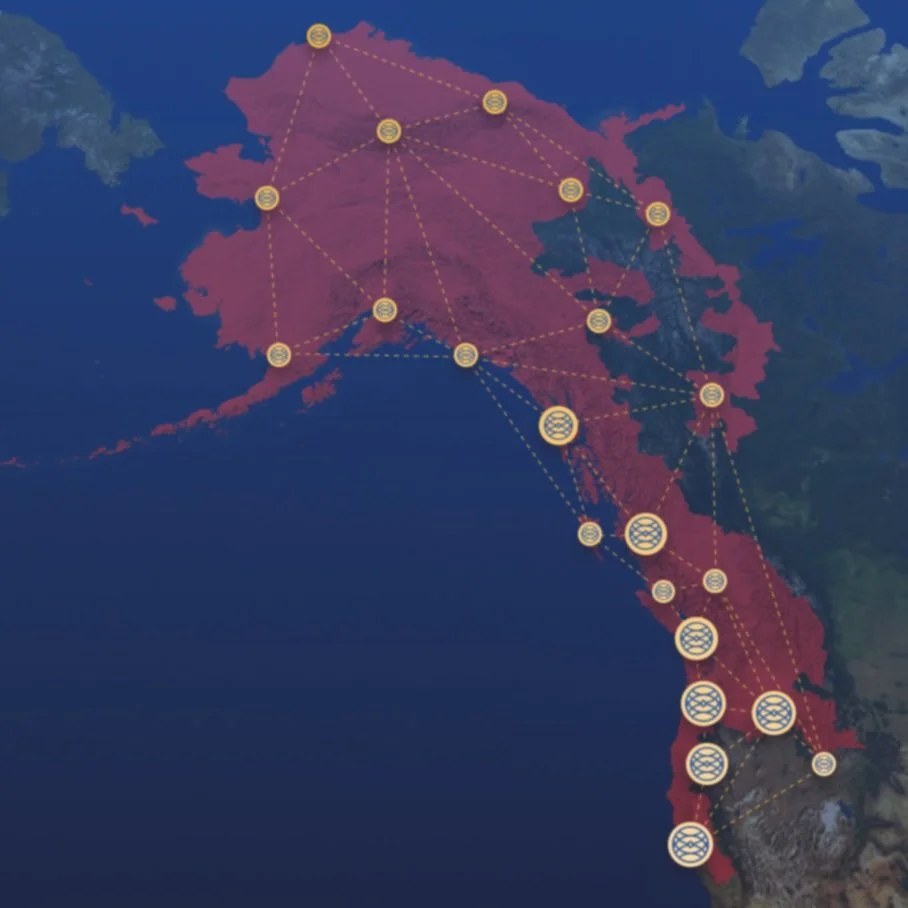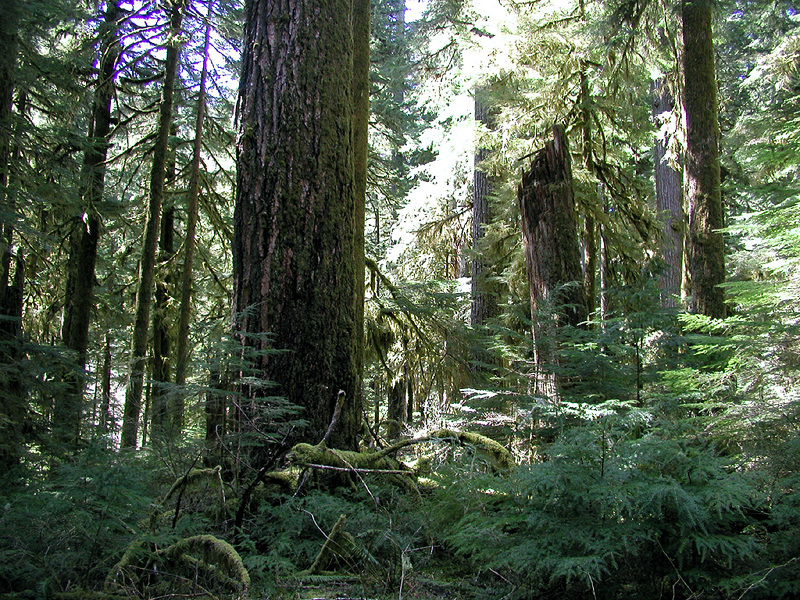CHUCK
[chuhk] or [tsukw] — noun.
Meaning: water; liquid; river; stream
Origin: Nootka Jargon chaak 'water' < Nuu-chah-nulth cha’uk ‘water’. Also from a Chinookan noun tlchuqw ‘water’ > Chinook, tltsuk; Clatsop, tl'chukw, freshwater. Evidently, a case of accidentally converging form/meaning.
The word ‘chuck’ is extremely widespread in Chinook Wawa. While it can often be used as a shorthand of any number of bodies of water, there are often modifiers to lessen the ambiguity; "cooley chuck" (river; stream), “tenas chuck” (creek; brook; pool; moisture), “memaloose chuck” (pond), “hiyu chuck” (flood), and "hyas chuck" (deluge) are just some of them. Perhaps the most widely used variant was "skookum chuck" (whitewater rapids), a compound word literally meaning "strong water" that is found in many place names throughout Cascadia.
In addition to bodies of water, is also included activities and actions in those bodies, such as “mitlite saghalie kopa chuck” (float), “mahsh keekwullie kopa chuck” (submerge), “klatawa keekwullie kopa chuck” (dive) and “chako klahanie kopa chuck” (come out of the water). Of course, it could be risky to “klatawa kopa lepee kopa chuck” (wade) or "chuck ooahut" (to ford) out into "klip chuck" (deep water) for one might "memaloose kopa chuck” (drown) if unprepared.
The word ‘chuck’ is also used to refer to any type of “kahkwa chuck” (fluid; liquid), such as “chuck kopa stick” (sap) and “klale chuck kopa mamook tzum” (ink), "saghalie chuck" (holy water; magical potion; hot spring), and "cultus chuck" (alkali water; poison).
It lends itself to the names of some drinks, like “olallie chuck” (juice; berry juice), "chuck lapome" (cider), "piah chuck" (whisky), and that famous concoction "lumpechuck" (grog), a mixture of rum and water better known in the Queen's Navy as "diluted spirits."
It also applies to some bodily fluids, such as "chuck kopa seeowist" (tears), “chuck kopa skin” (sweat), “chuck mitlite kopa skin” (perspiration), and “mahsh lapush chuck” (spit; saliva").
There was also "salt chuck" (saltwater; the sea) and “hyas salt chuck” (ocean), places where one finds "salt chuck tupso" (seaweed) and maybe the occasional “chuck ooahut” (waterspout) during "solleks chuck" (a rough sea). Waves were normally expressed as “chuck chako solleks”, but could also be called “hiyu sea” in some cases.
The word ‘chuck’ is also used as part of a number of related marine descriptors, such as “illahee wake siah kopa chuck” (coast; coastline) and used to describe the different types of "chuck chako pe klatawa" (tide), including “chuck chako” (incoming tide; rising tide), “chuck kilapi” (outgoing tide; falling tide), "saghalie chuck" (high tide), "keekwullie chuck" (low tide), and “chuck yaka klatawa” (ebb tide).
These are all things one must be aware of when they “klatawa kopa chuck” (navigate), for one doesn’t want to be “cultus mitlite kopa chuck” (adrift) in a storm, and one most definitely dosn’t want to have to "mahsh chuck kopa boat" (bail out the boat).
Word order is important in Chinook Wawa, since “chuck mitlite kopa illahee (muddy ground) is a bit different from “illahee mitlite kopa chuck” (muddy water). Similarly, additional context can alter the meaning of a saying, as seen in the difference between "mitlite kopa chuck" (soak; to be wet) has a different meaning from "yaka mitlite kopa chuck” (they are on the water).
This also extends to phrases involving water; "mamook wagh chuck" (pour some water) is a bit different from “mamook cooley chuck” (irrigate) and “mamook liplip chuck” (boil water), and all three have a substantially different meaning from “mahsh chuck” (urinate).














